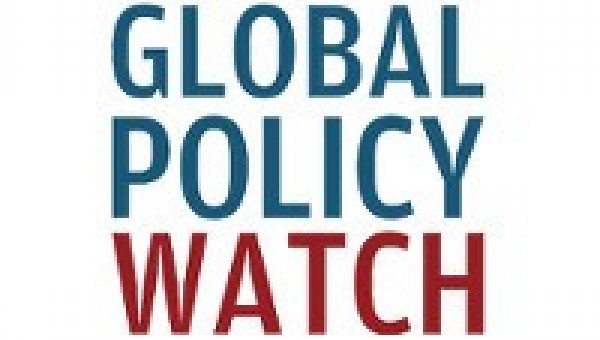News

By Barbara Adams and Sarah Dayringer
It may sound like an issue for health specialists, but at the UN high-level meeting on antimicrobial resistance (AMR) ministers and heads of state from around the world made clear that it is more than that it appears.
This is the fourth time that the UN General Assembly has addressed health issues. As the representative of Portugal pointed out, this meeting “is proof of global recognition of this problem and how important an issue it is”. Executive Director of South Centre, Martin Khor said that AMR is “as serious as Climate Change and perhaps more immediate”.
The political declaration adopted by the high-level meeting connects AMR to the 2030 Agenda for Sustainable Development, which offers a framework to promote sustainable agriculture and ensure healthy lives and well-being. There is consensus on the “One Health approach.” About which the Center for Disease Control (CDC) says “the concept recognizes that the health of humans is connected to the health of animals and the environment”. The CDC, based in Atlanta, is the leading national public health institute of the United States and it uses a One Health approach “by working with physicians, ecologists, and veterinarians to monitor and control public health threats”.
The President of the General Assembly, Peter Thomson, reiterated that the “principal objective of the 71st United Nations General Assembly— the theme of which is The Sustainable Development Goals: a universal push to transform our world— is to drive implementation of all 17 Sustainable Development Goals… and must ensure antimicrobial resistance does not thwart our objective”.
One of the gaps in addressing AMR is the push for “technological innovation”. The Director-General of the World Health Organization, Margaret Chan, emphasized that the emergence of resistance is out pacing the world’s capacity to produce new antibiotics” with few replacement products in the pipeline”. She added that “the pharmaceutical industry is reluctant to invest in costly antimicrobial discovery because the return on investment is poor…over the last half century only two versions of antibiotics have reached the market”.
A World Bank Group report entitled “Drug Resistant Infections: A Threat to Our Economic Future”, points out that global Gross Domestic Product (GDP) could be impacted negatively by 1.1 — 3.8 percent and even up to 5 percent in developing countries from the consequences of AMR. For the World Bank, this makes AMR a pressing economic concern as well as a health concern. AMR also has an impact on equality. World Bank Vice President of Human Development, Keith Hansen stated the AMR global crisis “could push 28 million people into poverty in the coming 30 years, which should be a concern for all countries working to achieve the SDGs and especially to reduce poverty”.
The major causes of AMR are excessive non-human use of antibiotics in food and agriculture and excessive use of antibiotics in some areas of the world, while access to antibiotics is not ensured in other areas where people are in need.
Access to medicines is a major challenge and has been the subject of the UN Secretary General’s high-level panel on Access to Medicines. Its recent report, “Promoting Innovation and Access to Health Technologies”, points out the shortcomings of science and technology in improving public health:
For decades, many international treaties and national constitutions have enshrined the fundamental right to health and the right to share in the benefits of scientific advancements. Yet, while the world is witnessing the immense potential of science and technology to advance health care, gaps and failures in addressing disease burdens and emerging diseases in many countries and communities remain. The misalignment between the right to health on the one hand and intellectual property and trade on the other, fuel this tension.
The AMR meeting highlighted the complex interlinkages among goals, targets and indicators in the 2030 Agenda and the ways in which a focus on achieving progress in one of the SDGs can either complement or impede progress in the others. The representative of Thailand on behalf of the Group of 77 stated “we are galvanizing political will from heads of state participating in the 71st United Nations General Assembly to address antimicrobial resistance”. The US Minister of Health and Human Services pointed out that US health insurance companies “spend 300 billion in health care costs and shed 35 billion in lost productivity” each year due to AMR.
Countries from all regions expressed grave concern about the threats from AMR, Will they be equally concerned and vigilant when addressing technical innovation and incentives? The U.S. Department of State expressed disappointment with the finding of the UN report on Access to Medicines that low-income countries should be allowed to override pharmaceuticals patents to access a cheaper supply of generic drugs, arguing that intellectual property rights in the pharmaceutical industry are essential to medical innovation, which itself is fundamental to promoting global health.
It is essential to galvanize thoughtful consideration and demand for action for all areas of the SDGs and address the potential conflicts of interest that may arise, as expressed by Guyana’s Vice President:
…though governments have done their share of increasing AMR, more has to be expected from pharmaceutical companies, which play a crucial role in the economics of supply and demand There is of course a conflict of interest between these companies that drive the AMR industry and the societies that they serve, which can have far reaching consequences.
